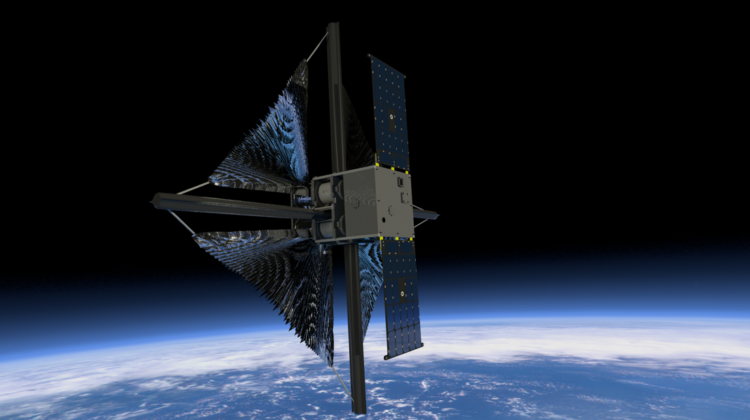
NASA has selected California-based space-systems company Rocket Lab to launch its Advanced Composite Solar Sail System, or ACS3, into orbit. The launch, which will take place aboard a Rocket Lab Electron vehicle, is scheduled to take place towards the middle of 2022.
The ACS3 technology demonstration is an innovative satellite designed to test new deployable structures and materials technologies for solar sail propulsion systems, which employ the pressure of sunlight for propulsion, eliminating the need for conventional rocket propellant. Data collected from the ACS3 demonstration will guide the design of future larger-scale composite solar sail systems, which could eventually be used for space-weather early-warning satellites, near-Earth asteroid reconnaissance missions, communications relays for crewed exploration missions or even deep-space exploration.
ACS3 will launch as part of a rideshare mission, scheduled for lift-off from Rocket Lab’s Launch Complex 1 on New Zealand’s North Island in mid-2022. The Electron launch vehicle’s Kick Stage feature, which enables it to deploy individual satellites in unique orbits, even when flying as part of a rideshare, was a key factor in Rocket Lab’s selection as the launch provider. The ACS3 needs to be deployed in a higher orbit than the other payloads that will be launching on the same mission, so after deploying the first payloads, the Kick Stage will perform another burn with its 3D-printed Curie engine to raise the orbit and deploy ACS3.
‘We are thrilled to be NASA’s launch partner for this innovative mission,’ said Rocket Lab founder and chief executive Peter Beck. ‘It seems fitting to launch NASA’s Advanced Composite Solar Sail System on Electron, the world’s first full-carbon-composite orbital launch vehicle. We’re excited to see composites used yet again to unlock new capabilities in space.’


